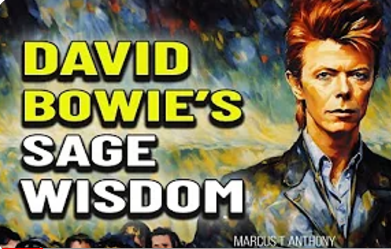It has become fashionable in certain circles to denigrate and deride humanity, to say that we simply aren’t up to the task of curating the future. I refer to the rise of the doomer mindset, and the longing for self-termination that lies within our species’ shadow. This is a collective soul issue that our species must rise above, not surrender to.
Three and a half billion years of evolution have gone into putting us in this position as the moral custodians of the planet. Whether we like it or not we have a moral duty to preserve life on Earth, with all the creative, responsible energy that we’ve got.
It is perhaps even more sobering that the kind of analytical intelligence that you and the people around you exhibit today has only existed a very short time. And now at the dawn of the Age of Artificial Intelligence, that intelligence is being amplified manifold by the technologies that we have developed. That is a great gift, but it also represents great responsibility. The stakes are very high. We have to nurture the planet. And each other.
Watch the YouTube version of this article.
Our old stories will not do. The myth of the all-conquering hero, who sets out to tame a hostile land and achieve power and control over nature and his tribal enemies has done its course. The awareness of the limitation of that narrative has been around for many decades now. Yet we have to be careful that in creating new myths, we do not inadvertently perpetuate undesirable aspects of the old stories. Even as we “save” the world, we must not perpetuate tales saturated with fear and anger, blame and projection, where violence and shame are our sharpest weapons, replete with denunciations and threats delivered to tribal enemies, who have to be silenced, and then cast out from amongst us.
Thus it has come to pass that at this point in our vast cosmic evolution, and in this increasingly divisive world, what we require is a new unifying myth. By “myth,” I mean a story that redefines us, and that can help transform our cultures, ways of knowing and ways of being. And it has to be a myth about our species in its entirety, in its wholeness, not one that is embedded within a divisive belief system or political ideology which weaponises good causes to turn us against each other.
Much my book Power and Presence and my YouTube channel of the same name, is about how technology can imprison us, divide us and colonize our souls. Yet I believe it can be used to transform us in positive ways, to help awaken us. Our technology can and should serve our Deep Selves and awaken our Integrated Intelligence, not obfuscate it. We have much soul searching to do, and much darkness to bring forth into the light. And we need to tell the truth, to allow the lies we have told each other to be revealed. Gently.
Fortunately, as I write these words it is March 2024, and more than two years since the James Web Space Telescope was launched. And what a magnificent cosmos it is helping us to perceive! I have elsewhere spoken and written about how simply using our expansive peripheral vision and our sense of wonder and awe can instill optimism for the future, including igniting our spatial memory and our capacity for the synthesising of knowledge. From the vantage point of cosmic distance, peering back at ourselves on this tiny planet, orbiting a small, yellow star amidst a vast universe, our tribalism and self-interest would appear insignificant. Petty. I firmly believe that we have a part to play in the grand story of this cosmos with its possible twenty trillion galaxies and fourteen billion years – or much more if the Big Bang theory collapses.
But let’s be honest. This immense cosmos can get by without us. But at the very least we should feel the great tragedy that it would be if we were to extinguish ourselves; and fail to instill the greater light that we can add to that universe. And that can be a vital aspect of our new story. We (aside) – and that includes you – are the bringers of the light, having traveled through the dark night of the collective soul evolution of homo sapiens sapiens, and we can now be teachers on a grander scale for the other myriad life forms on this planet. And perhaps for civilizations beyond our own; for as I have alluded to, I do believe that there are otherworldly civilizations here even now, and who are teaching us – whether we are aware of it or not.
Which brings me to the story of Brazilian-born theoretical physicist and 2019 Templeton Prize winner Marcelo Gleiser, a wise and highly intelligent human being who understands the importance of not knowing, and who realizes the priceless value of awe and wonder. Gleiser knows that the vastness of the universe speaks to us in a language that tells a much grander story than the mechanistic tale that our science often defers to. He rejects the cold clockwork images of the Newtonian era, in preference for a grander canvas that reveals a cosmic cathedral of great beauty and deep connectivity. And here I quote Gleiser directly, from a March 2019 interview published in Scientific American.
To me, science is one way of connecting with the mystery of existence. And if you think of it that way, the mystery of existence is something that we have wondered about ever since people began asking questions about who we are and where we come from. So while those questions are now part of scientific research, they are much, much older than science… I’m talking about science as part of a much grander and older sort of questioning about who we are in the big picture of the universe. To me, as a theoretical physicist and also someone who spends time out in the mountains, this sort of questioning offers a deeply spiritual connection with the world, through my mind and through my body. Einstein would have said the same thing, I think, with his cosmic religious feeling.
That’s not normally the way we used to hear scientists talk, is it, at least not within their formal academic roles? Since the scientific enlightenment of the 17th century, we have tended to think of science and the spiritual and religious as separate domains. But that is slowly changing, albeit rather uncomfortably for many of those of the old science school brigade. Yet Marcelo Gleiser believes that atheism is actually inconsistent with the scientific method. Note that he is not advocating for any specific religious narrative, but is merely pointing out that it is in not knowing that all great science begins. Instead, great science is – and I quote Gleiser directly again – “A deeply spiritual conversation with the mysterious, about all the things we don’t know.” Gleiser believes that this new myth can bring us together. It can unify. Gleiser thus has this to say:
…to understand modern science within this framework is to put humanity back into kind of a moral center of the universe, in which we have the moral duty to preserve this planet and its life with everything that we’ve got, because we understand how rare this whole game is and that for all practical purposes we are alone. For now, anyways… So, what is the myth that will define the culture of the 21st century? It has to be a myth of our species, not about any particular belief system or political party. How can we possibly do that? Well, we can do that using astronomy, using what we have learned from other worlds, to position ourselves and say, “Look, folks, this is not about tribal allegiance, this is about us as a species on a very specific planet that will go on with us—or without us.”
For Gleiser, science and scientists cannot solve all the world’s problems, because the scientific method is limited. Instead, science must be open to engagement with ethicists, philosophers, theologians, and mystics. And he believes that that will require humility, and a relaxation of power and control.
I couldn’t agree more.
Marcus





